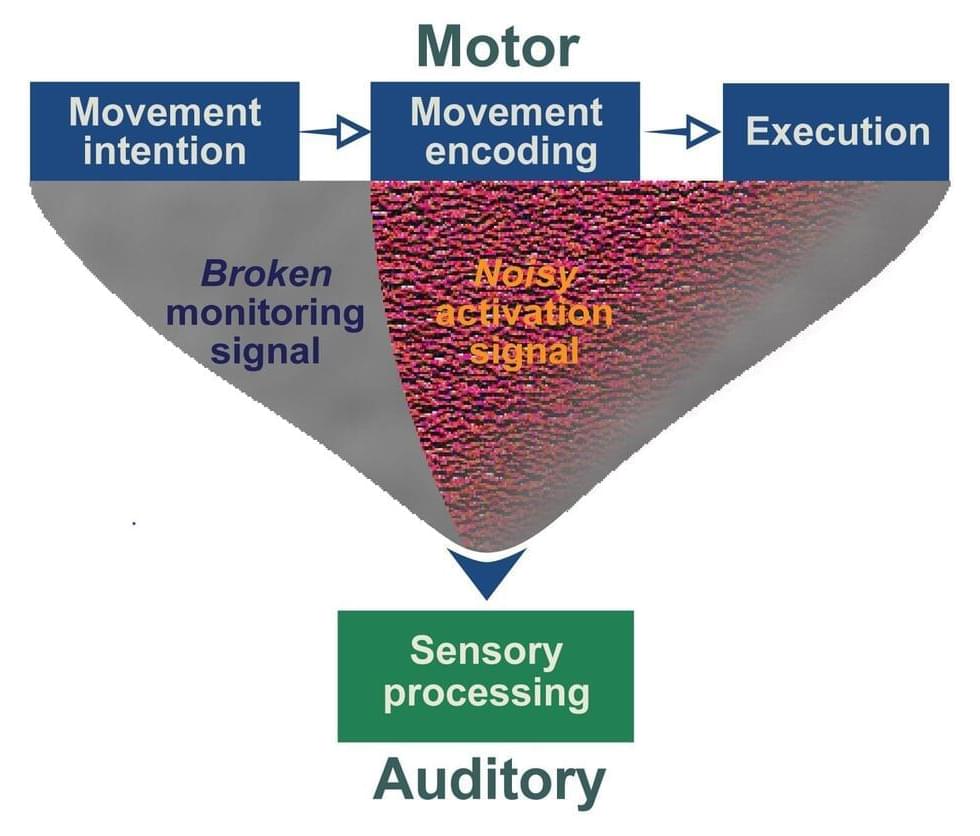Patients with certain mental disorders, including schizophrenia, often hear voices in the absence of sound.
Auditory hallucinations are likely the result of abnormalities in two brain processes: a broken corollary discharge that fails to suppress self-generated sounds, and a noisy efference copy that makes the brain hear these sounds more intensely than it should. That is the conclusion of a study published October 3 in the open-access journal PLOS Biology by Xing Tian, of New York University Shanghai, China, and colleagues.
In the new study, researchers carried out electroencephalogram (EEG) experiments measuring the brain waves of 20 patients diagnosed with schizophrenia with auditory hallucinations and 20 patients diagnosed with schizophrenia who had never experienced such hallucinations.









Leave a reply